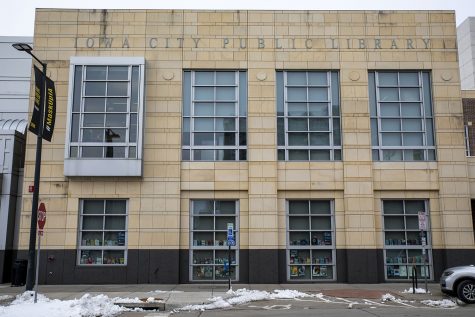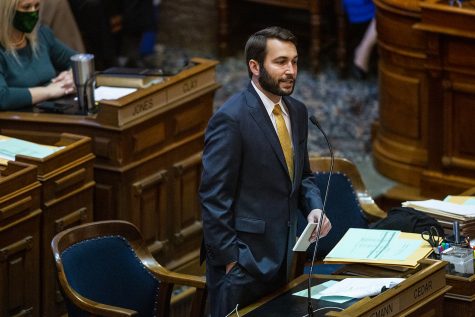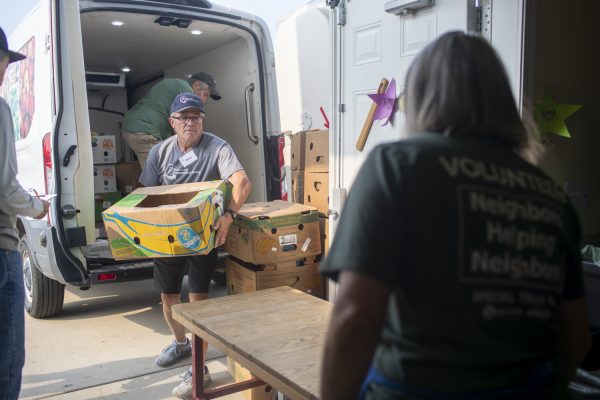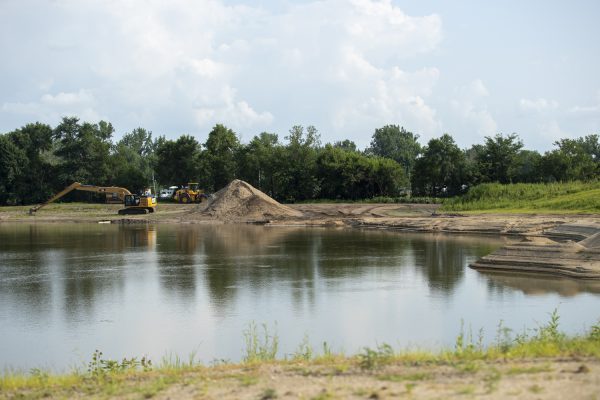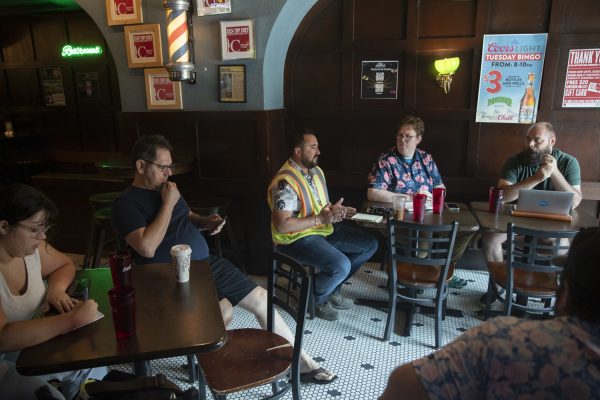Sexual Assault Nurse Examiners see decrease in patients during the pandemic
Despite a substantial decrease in the number of sexual assaults reported to the Iowa City Police Department since the start of the pandemic, healthcare workers and victim advocates emphasize assault rates are likely still high and care is still necessary.
University of Iowa Hospitals and Clinics are seen on Tuesday, June 23, 2020.
February 7, 2021
Both the Iowa City Police Department and the Johnson County Sexual Assault Response Team have seen a significant drop in sexual-assault reports since the start of the pandemic. While reports have decreased, however, experts say the effects of COVID-19 may prevent victims from seeking treatment.
According to data provided by Iowa City police, there were 48 sexual assaults reported between March 1, 2020, and Jan. 31 — roughly a 57-percent decrease from the same period last year.
Coordinator for the Johnson County Sexual Assault Response Team Katy Rasmussen, who is also a practicing sexual assault nurse examiner, said she’s seen a similar decrease in the number of patients coming in for sexual assault-related care.
“Our numbers are really down,” Rasmussen said. “Studies show that during pandemics or times of crisis like natural disasters, domestic violence really goes up. And so, you would assume, because domestic violence and sexual assault can be really closely related, that you would see the same thing. We’re just not seeing that.”
Rasmussen said she does not believe the drop in patients means sexual assaults are not being committed during this time.
“I would love to never have patients,” she said. “I would love there to be no need for me to have this job, but I don’t think that’s the current case.”
Assessment Coordinator for the Iowa City Rape Victim Advocacy Program Emily Milke said she shares Rasmussen’s concerns.
“I think there’s still sexual assault happening at alarming rates. It was underreported, and now it’s still underreported,” Milke said. “There might be people out there who don’t know that they can still go to the ER and that hours are still open. They might be worried about picking up the [COVID-19] virus at the hospital and don’t want to take that risk. There are probably people who don’t even know that going to the hospital is an option.”
The Rape Abuse and Incest National Network reported that access to sexual assault forensic exams, rape kits, may be reduced in areas hardest hit by COVID-19.
While both University of Iowa Hospitals and Clinics and Mercy Iowa City continue to provide 24/7 access to forensic care, Rasmussen said she worries some patients aren’t coming into the hospital.
“We’re not seeing the same number of patients and it’s hard for us because we’re not able to provide the services,” she said.
This problem isn’t unique to Iowa. Nurses around the country have reported a significant decrease in patients looking for sexual assault-related care since the start of the pandemic.
Victim Services Coordinator with the Iowa City Police Department Ann Thompson said it’s possible the pandemic could be having an impact on sexual-assault victims coming forward.
“With sexual-assault victims as well as DV [domestic violence] victims, they’re not as likely to report. And there could be a myriad of other reasons why they’re not reporting. But I’m sure the pandemic has an impact,” Thompson said. “More people are isolated. They may not want to reach out as much.”
Milke added that she has concerns about how isolation is impacting victims of sexual assault.
“People come forward in a whole host of situations, but sometimes it’s at the encouragement of a friend who notices, ‘Hey you’re not your usual kind of self, what’s going on?’” she said. “Or it’s at the encouragement of family that you see.”
The reduced frequency of these interactions, coupled with other stressful events related to the pandemic such as job loss or medical issues, may help explain the decrease in reporting, Milke said.
Thompson said she tells sexual-assault victims that the decision to go to the hospital is entirely their call. She said she provides victims with information about timelines for reporting and is there to support victims in whatever decision they make.
For victims who chose to come into the hospital, Rasmussen said she understands their concerns about COVID-19 and that hospitals are taking precautions to protect patients.
“The hospitals here are doing everything we can to limit people’s exposure,” Rasmussen said. “They require masks which are a great way of protecting yourself and those around you. They’re doing temperature checks and screenings at all the entrances.”
Rasmussen said she helped create a protocol for COVID-19-positive patients to receive care from nurse examiners, ensuring they are ready to help any victim who comes through their doors.
Sexual Assault Nurse Examiners are still able to offer patients all the same services, including medication for STDs, emergency contraception, and forensic exams. Patients can choose which parts of the exam they’re comfortable with and all care is provided free of charge to the individual, Rasmussen said.
Milke and Thompson said both have adapted their services since the pandemic, offering remote support to victims as well as limited in-person support in accordance with health and safety guidelines.
Sexual-assault nurse examiners are on call 24/7 at both UIHC and Mercy Hospital, Rasmussen said.
“[Sexual assault] is something that deserves medical care,” Rasmussen said. “Each person has to weigh whether, for them personally, they’d rather get that medical treatment or if they feel that the risk of exposure is too much. That’s a very personal decision and they have to make that decision for themselves but we’re doing everything we can to make sure people are safe and that they can receive that medical care that they need.”




